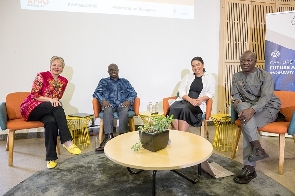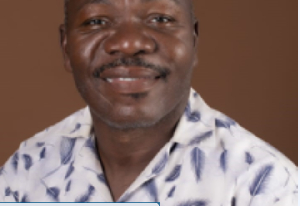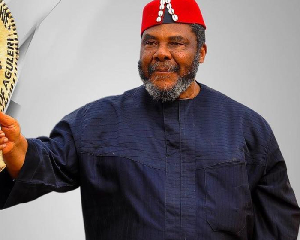Public-attitude surveys demonstrated that ordinary Africans have the agency and ability to voice their opinions, regardless of the narratives pushed by experts and pundits, Afrobarometer co-founder and Board Chair E. Gyimah-Boadi told participants in a dialogue hosted by Future Africa at the University of Pretoria.
Gyimah-Boadi headlined a conference titled “The Afrobarometer story and reflections on evidence for policy,” moderated by Future Africa Director Heide Hackmann.
The event forms part of the research platform’s Dialogue Series, which aims to stimulate bold ideas and disruptive thinking on how science can make a difference to real-world problems and how best to enable it.
Retracing Afrobarometer’s beginnings, Gyimah-Boadi highlighted the research network’s first critical milestone at the dawn of the new millennium (1999/2001).
“We successfully finalized a comprehensive data set from 12 countries. Our work decisively refuted the doubts raised by skeptical reviewers of our initial funding proposal, proving them unequivocally wrong,” he said.
“Moreover, we demonstrated that ordinary Africans have the agency and ability to voice their opinions, regardless of the narratives pushed by experts, pundits, and assorted elites.”
Explaining how Afrobarometer moved from pen-and-paper surveys to using tablets and other technologies today, Afrobarometer CEO Joseph Asunka said, “The good thing is that [technology] allows us to have good quality control because you can see the GPS locations of where [the enumerators are conducting the surveys].
You can see them moving from house to house, and you can go back and trace which houses they entered and who they conducted the interviews with” – all while guaranteeing the privacy of the respondents.
Going on to share Afrobarometer survey findings on democracy and governance, Asunka said, “Our data is valuable for policymakers in the sense that it can be used as a rock on which to stand to pursue policies.”
Afrobarometer data show that a clear majority of Africans express support for democracy and accountable governance. Across 36 African countries surveyed in 2021-2022, two-thirds (66%) of citizens say they prefer democracy to any other system of government, and even more reject non-democratic alternatives such as one-man rule (80%), one-party rule (78%), and military rule (67%).
Africans also strongly endorse many of the norms, institutions, and practices associated with democratic governance, such as choosing political leaders through the ballot box (75%), placing constitutional limits on presidential tenure (74%), multiparty competition (64%), free media (65%), and holding government accountable (61%).
However, Afrobarometer Digital Portfolio Manager Shannon van Wyk-Khosa noted a “great disillusionment between the youth and those who govern them. Generally, we see that lots of African youth feel they are not being listened to by their governments.”
Compared to their elders, the youth are even more critical of institutional corruption and show considerable distrust in public institutions. They are also more likely than their elders (by 10 percentage points compared to those over age 55) to express a willingness to tolerate military intervention if elected leaders abuse their power.
The partnership between Afrobarometer and Future Africa launched in 2021, aims to strengthen collaboration between the two institutions through capacity-building workshops and seminars and the co-development of training materials to introduce students to the collection, analysis, and communication of public opinion data.
Press Releases of Thursday, 7 September 2023
Source: Afrobarometer

















